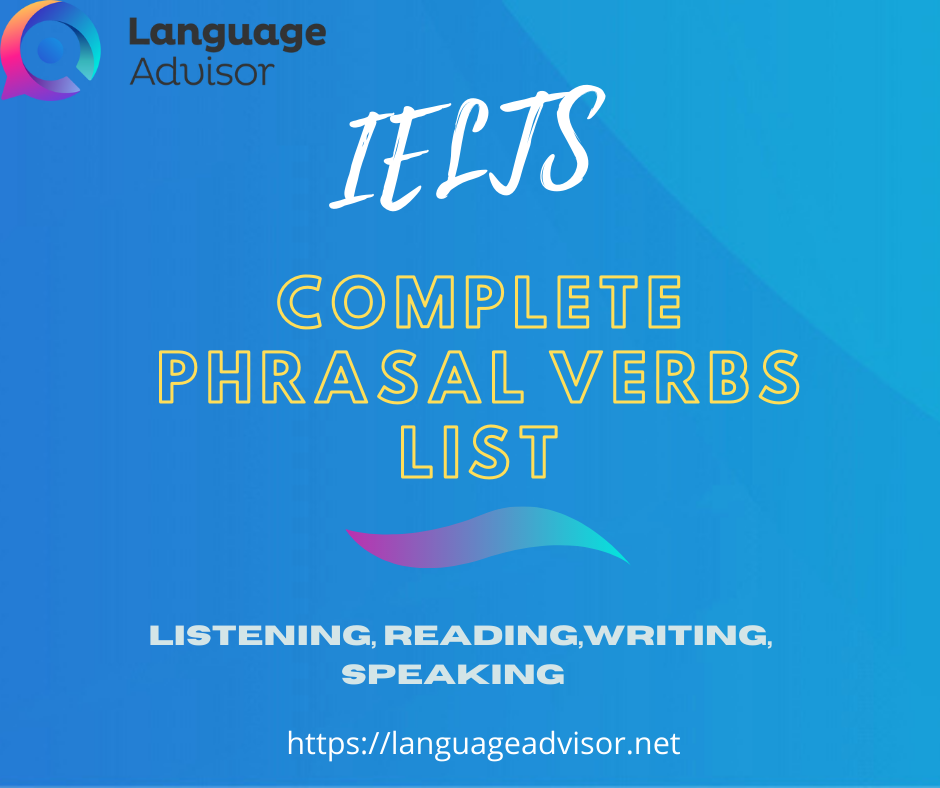IELTS Complete Phrasal Verbs List. List from A to Z of the most used and important English phrasal verbs
IELTS Complete Phrasal Verbs List
Using phrasal verbs could help you get band 7+. Native English speakers often use phrasal verbs in conversation, and so should you!
What are phrasal verbs?
Phrasal verbs are formed with a verb and a particle (a preposition or an adverb). For example, ‘wake’ and ‘up’ together form the phrasal verb ‘wake up’. Phrasal verbs often have a completely different meaning to the verb on its own.
Phrasal verbs are a type of idiomatic expression and using them helps you sound more informal and natural in English. You can use them in the IELTS speaking exam if they are relevant to the tasks or topics. This can help you achieve a higher band score.
Phrasal verbs are important because they are extremely common in informal English, and unless you are familiar with their meanings, understanding informal language will be difficult. In addition, learning to use phrasal verbs correctly will help you sound natural in casual conversation.
Phrasal verbs make you sound much more natural, which is important in IELTS Speaking. What’s more, a lot of them are idiomatic and using less common idiomatic vocabulary is a key criteria for IELTS Speaking
When learning a new phrasal verb, you should also try to learn which particle(s) it takes. For example, we can say “Look back (-) with regret” or “Look back ON your previous career with regret” or “Don’t look back IN anger…” (Oasis song!), but this depends on the context and your intended meaning.
In order to achieve higher score in the IELTS Writing tasks it is very important to consider the grammar you are planning to use. It demonstrates that you have a good command of the English language and you can form complex sentence structures with idiomatic meaning. Besides, they can also be used in a spoken task.






